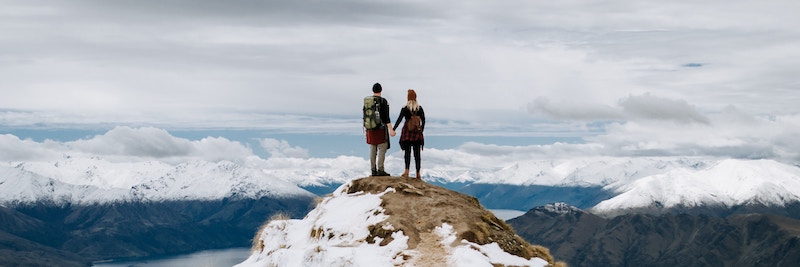Here are some local laws relevant to foreign travelers in New Zealand, as well as what to do if you run afoul of the New Zealand authorities.
When traveling to New Zealand, it’s important to keep in mind that you’re not exempt from the local laws. Breaking the law in this island country can result in consequences, even if you don’t do it on purpose. Depending upon the offense, you may have to pay a fine, go to court, or face possible imprisonment or deportation.
In New Zealand, there are various laws that differ from those in the US. As a traveler, you should learn beforehand about the aspects of New Zealand law that can impact and affect you, including drinking and tobacco laws, import restrictions, traffic laws, and rules surrounding wildlife encounters.
- Local Laws in New Zealand Travelers Should Know
- Currency
- Passport and Visas
- Customs and Border Patrol
- Photographs and Video Recordings
- Indigenous Sites
- Drinking
- Smoking and Tobacco
- Drugs
- Driving
- Wildlife and Animals
- Legal Rights for Women
- LGBTQ+ Travelers
- What Happens If I Break the Law While Visiting New Zealand?
- New Zealand Extraterritorial Jurisdiction
- New Zealand: Know Before You Go
Local Laws in New Zealand Travelers Should Know
Currency
You are required to declare if you carry NZ$10,000 (or foreign equivalent) or more cash or equivalent into or out of New Zealand. This includes not only cash but also checks, money or postal orders, promissory notes and other forms of payment.
Passport and Visas
Foreign travelers are required to bring a valid passport and a valid visa to enter New Zealand. Your passport must be valid for at least three months after the date that you plan to leave New Zealand. All visas are electronic, but you need to print your eVisa letter and bring it with you when you travel to New Zealand.
Depending upon your visa, you may need to show proof of a ticket to leave New Zealand or that you have sufficient funds to support yourself during your stay.
In cases such as a short-term visit for the purpose of tourism, visiting friends and loved ones, or short-term business meetings or seminars, travelers need to apply for a New Zealand Electronic Travel Authority (NZeTA) before they travel. The NZeTA is not a visa, but it is a mandatory requirement.
Customs and Border Patrol
It’s tempting to bring a piece of fruit or something to snack on when traveling to New Zealand, but it’s actually a big no-no.
Due to the island country’s biodiversity, any stowaway pests or introduced disease can impact the environment and economy. On your Passenger Arrival Card, you must declare any items that are listed as risky by New Zealand’s Ministry for Primary Industries.
Many of these prohibited and restricted items consist of commonly consumed agricultural goods, including fruit, vegetables, meat, fish, poultry, honey, ingredients used in cooking, and all dairy products. Shoes and sporting or outdoor equipment have to be inspected as well, to keep invasive species from creeping into New Zealand’s fragile environment.
If you fail to declare any or all of these items to the local authorities, the Ministry for Primary Industries might either give you a fine or another penalty. Visit MPI’s website for more information on what items can and can’t be brought into New Zealand.
Other prohibited items include knife-like weapons, weapons disguised as something else, and certain transmitter devices.
link to Travel Restrictions
Photographs and Video Recordings
Although New Zealand has many photogenic sites, there are places where it’s illegal or insensitive to take photographs or video recordings.
When photographing people, it’s always good practice to ask for permission first, particularly if you’re capturing a close-up or if the person is the main subject of your photo. This is particularly important in the context of cultural performances or ceremonies by the Māori, the Indigenous people of New Zealand.
Some sites are considered sacred by the Māori. While these sites are not typically off-limits to photography, it’s important to be respectful. If you’re unsure, ask a local guide or any relevant authority.
If you’re bringing a drone to New Zealand, there are certain regulations imposed by the Civil Aviation Authority and the regional councils or local government authorities responsible for the area in which you wish to fly.
When photographing nature and wildlife in rural areas, it’s important to minimize your impact on the environment and not disturb animals in their natural habitats.
Indigenous Sites
When at a Māori site, such as a marae (communal gathering place), check with a Māori elder or owner before taking out your camera; photography or filming may not be allowed without permission. You should always ask a Māori person’s permission before photographing, filming, or taping them.
It’s also important to read up on Māori culture and traditions, as there is cultural etiquette that should be followed. For example, when visiting a marae, be sure to dress modestly and seek permission before entering. If you’re going into a wharenui (communal house), take off your shoes before entering, leave all food and drink outside, and always ask before taking pictures.
Drinking
The legal age for drinking and purchasing alcohol in New Zealand is 18. A passport is accepted as a form of ID. Most towns and cities in New Zealand have liquor bans in designated public places; drinking alcohol or having an open alcohol container in these areas could lead to an arrest or NZ$250 fine.
Smoking and Tobacco
In 2022 an anti-smoking bill was passed that makes it illegal to sell tobacco to anyone born on or after January 1, 2009. This law is part of the Smokefree Aotearoa 2025 Action Plan to usher in a smoke-free future for New Zealand by 2025.
Drugs
Under Misuse of Drugs Act 1975, it is an offense to use, possess, cultivate, or traffic (deal) in illegal drugs. Equipment for using cannabis or methamphetamine are also prohibited.
Driving
If you plan on driving in New Zealand as a tourist, it’s crucial to get familiar with certain road rules first. New Zealanders drive on the left side of the road, in contrast to the US rule of driving on the right side.
The island country’s roads might be different than what you’re used to. Roads are mostly two-way, with one lane in each direction, but they can also be narrower, more winding, and sometimes steeper.
Tourist drivers also must have a current and valid US (or overseas) driver’s license or international learning permit. If you’re in New Zealand for longer than 12 months, then you’re required to obtain a New Zealand driver’s license.
While driving, wearing seatbelts is mandatory for everyone in the vehicle, as is adhering to speed limits and road-safety regulations. It’s illegal to use your cell phone while driving, and definitely don’t drive under the influence—it could land you in jail.
To help you prepare for the rules of the road in New Zealand, the Waka Kotahi NZ Transport Agency has driving-related resources, including Drive Safe. (Note also that the distances between point A and point B might be longer than you realize.)
Wildlife and Animals
New Zealand’s wildlife should always be treated with the utmost respect. The Wildlife Act 1953 is the principal legislation relating to wildlife protection, control, and conservation throughout the country.
Under this law, the majority of native species may not be hunted, killed, eaten, or possessed. It applies to land-dwelling birds, some marine mammals, and some species of reptiles and amphibians that are native to New Zealand.
New Zealand’s Department of Conservation has the following tips on how to behave around wildlife:
- Don’t get too close, as some animals could feel vulnerable or threatened
- Don’t even try to take a selfie with an animal
- Don’t share your food or try to feed the animals with native plants
- Don’t attempt to catch or hold wildlife
Legal Rights for Women
New Zealand has made major strides in women’s representation in government, such as with the appointment of former Prime Minister Jacinda Ardern in 2017. It has also seen legislative advancements for women in terms of employment, education, and maternity and parental rights.
New Zealand is generally safe for women travelers, but it’s important to practice common sense safety precautions when out and about. Don’t walk alone late at night or accept rides from strangers, and always secure your belongings.
If heading out into nature solo, always let someone know of your plans. The Land Safety Code provides important tips for those venturing into New Zealand’s natural wonders.
If you are the victim of rape or sexual assault, dial 111 and ask for police or go to the nearest police station. The New Zealand Police Department has information on what happens after the police are contacted as well as exterior support services that can provide specialists to assist.
LGBTQ+ Travelers
New Zealand is a world leader in LGBTQ+ rights, from reform legislation decriminalizing same-sex relationships in 1986 to the legalization of same-sex marriage in 2013.
Among other things, the Human Rights Act 1993 prohibits discrimination based on sexual orientation in employment, housing, education, and public services. In 2020, the Act was expanded to also cover discrimination on the grounds of gender identity, gender expression, and sex characteristics.
Generally, tolerance is the situation in bigger cities, which are the locations for Pride festivals.
What Happens If I Break the Law While Visiting New Zealand?
According to New Zealand’s Ministry of Justice, crimes are known as offenses and put into different categories, depending on how serious they are and the maximum penalty for the offense. Local or regional authorities determine what type of court the defendant will appear in and the type of trial that will occur.
For example, Category 1 offenses fall under infringements, and there’s a fine imposed; proceedings are undertaken within the District Court. Category 4 offenses are the gravest cases and go to a jury trial in the High Court.
If you’re arrested and imprisoned in New Zealand, you should immediately seek legal assistance from a reputable law firm or lawyer. You can speak to the duty lawyer (also known as the duty solicitor) on your first day in court or search the New Zealand Law Society’s listings for legal help.
You should also immediately alert your country’s embassy or consulate. They can provide assistance and guidance on what you should do next.
New Zealand Extraterritorial Jurisdiction
New Zealand’s extraterritorial-jurisdiction laws are primarily directed at New Zealand citizens and residents for acts committed abroad. These laws allow the New Zealand government to prosecute these individuals for certain serious crimes committed overseas, such as child sexual exploitation, acts of terrorism, and bribery of foreign public officials.
Foreign visitors to New Zealand are subject to New Zealand law for acts committed within New Zealand. New Zealand has bilateral extradition treaties with the United States, Hong Kong, Fiji, and the Republic of Korea.
New Zealand: Know Before You Go
Obtaining the proper visa is an essential part of planning your trip. At Entriva, we can easily and efficiently help you with every aspect of getting a New Zealand visa. Start your visa application process.
Doing your research before traveling helps you avoid issues and be prepared in case of an emergency. For more information on other aspects of travel to New Zealand , including travel restrictions , health and safety , local culture and customs , and how to extend your stay, visit our New Zealand content hub.














